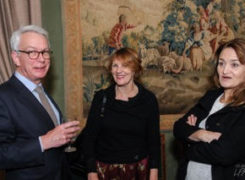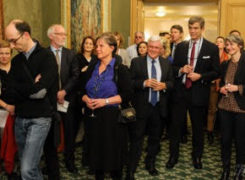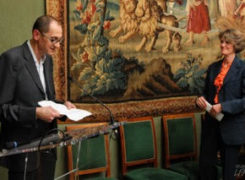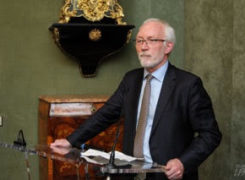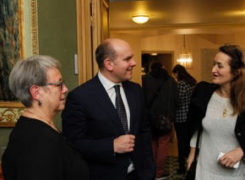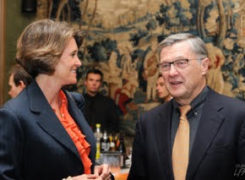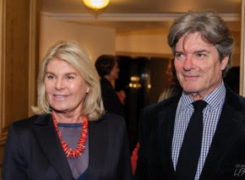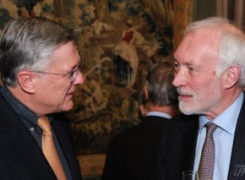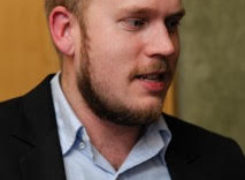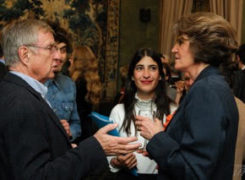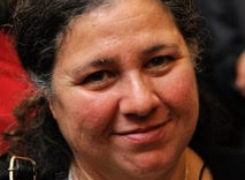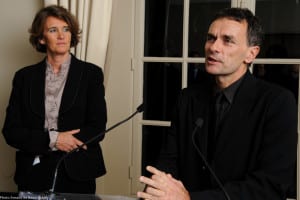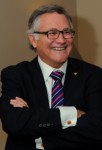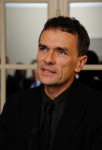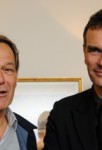Laureate
"It's a way to inspire vocations for psychiatric research."
On the occasion of the 10th anniversary of the Philippe and Maria Halphen Foundation, Yves Agid, co-founder of the ICM and member of the Academy des Sciences, presents the foundation and shares the current challenges and ambitions of psychiatric research.
"The prevention of disorders means detecting them early using biomarkers and then implementing specific strategies to prevent the outbreak of the disease or at least limit its consequences."
To celebrate the 10th anniversary of the Philippe and Maria Halphen Foundation, discover the profile of Marie-Odile Krebs, winner of the 2015 award. A specialist in the prevention of severe psychiatric disorders, she works to improve patients’ autonomy and quality of life through biomarker research and prevention campaigns. Personalized protocols for transformed lives!

David Cohen is Professor at Sorbonne Université, Head of the Child and Adolescent Psychiatry Department at the Pitié-Salpêtrière Hospital, member of the Institut des Systèmes Intelligents et de Robotiques (ISIR), and corresponding member of the Académie de Médecine. He is also a visual artist.
His research, awarded the Prix 2024 by the Fondation Halphen, explores the interfaces between psychoses and development, psychoses and rare diseases. His team is a pioneer in the use of special therapies in adolescents, particularly in cases of catatonic syndrome or associated organic disease.
The Philippe & Maria Halphen Foundation has awarded the Grand Prix Halphen 2023 at the Académie des Sciences to Sonia DOLLFUS, University Professor – Hospital Practitioner at l’Université Caen Normandie and Caen University Hospital and researcher at Inserm Unit 1237.
For her research into negative symptoms, the study of language networks using brain imagery, and adjuvant therapies such as physical activity and cerebral neurostimulation in patients with schizophrenia.
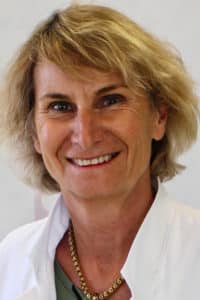
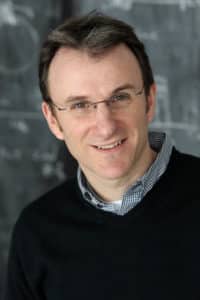
2022 – Gustavo TURECKI
Professor at McGill University in Montreal. Scientific Director, Douglas Institute Research Centre, Chief of Psychiatry, CIUSSS de l’Ouest-de-l’Île-de- Montréal
Canada Research Chair in Major Depressive Disorder and Suicide
Dr. Turecki’s work integrates diverse approaches, including basic research, clinical research and epidemiological research to help us better understand suicide risk and its severe psychopathologies in children and adolescents, such as psychosis or severe depression.
Among the many scientific projects proposed this year, Mathias Pessiglione’s dossier absolutely deserved the Philippe and Maria Halphen 2020 Award. The work of this researcher has brought important results for the future of the care of patients suffering from psychiatric disorders. Using neuroimaging techniques combined with mathematical models, this researcher has shown how the different elements of motivation (the value of goals, confidence in success, the need for effort, etc.) are integrated in the brain in order to guide the person’s behavior. These fundamental advances have led him to develop tests that make it possible to better characterize the motivational disorders present in patients, and therefore to personalize their management with better adapted treatments, particularly in depression and schizophrenia.
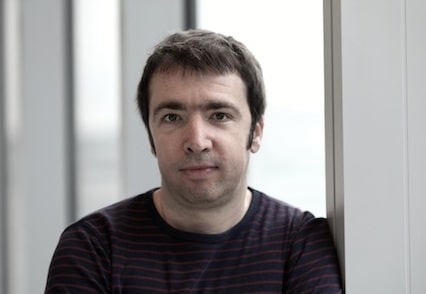
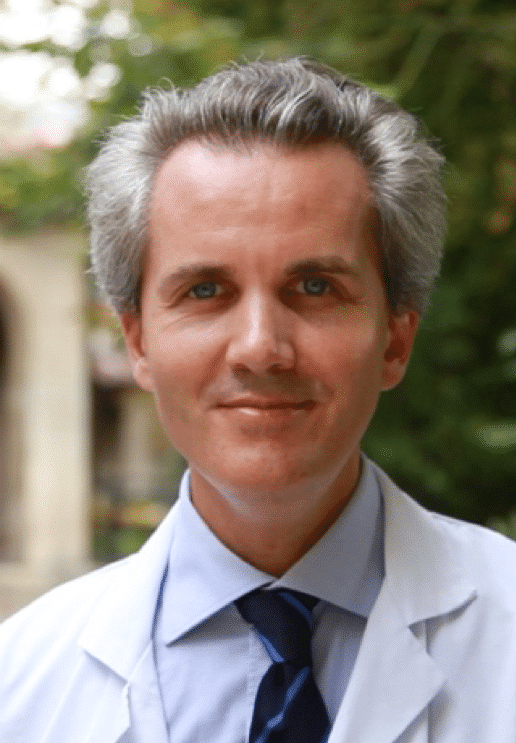 Graduate from l’Ecole Normale Supérieur and doctor, Raphaël Gaillard is Professor of Psychiatry at Paris Descartes University and Head of one the Sainte Anne Hospital Unit, which sees over 12,000 patients a year and comprises 5 departments, with both local and referral activity for the management of resistant pathologies. He presides over the Conseil National des Universités de Psychiatrie and the Congrès de l’Encéphale, an annual congress attended by 4,000 psychiatrists at the Palais des Congrès. After completing a doctoral thesis on the cerebral bases of consciousness and a post-doctorate at Cambridge University, he joined INSERM and the Institut Pasteur to conduct research combining cerebral imagery and psychopharmacology, with the aim of better characterizing the properties of psychotropic drugs. In the course of his research, he has demonstrated unconscious access to semantic attributes of words (Proceedings of the National Academy of Sciences, 2005 and 2006), as well as the alteration of memory traces by unconsciously perceived cues (Cognition, 2018). He has also characterized the disruption of decision-making during psychotic transition, leading to a publication in 2016 in the leading psychiatry journal, Molecular Psychiatry. He recently published with Stanislas Dehaene a model of schizophrenia considered to be linked to a disturbance in access to consciousness (Trends in Cognitive Sciences, 2017).
Graduate from l’Ecole Normale Supérieur and doctor, Raphaël Gaillard is Professor of Psychiatry at Paris Descartes University and Head of one the Sainte Anne Hospital Unit, which sees over 12,000 patients a year and comprises 5 departments, with both local and referral activity for the management of resistant pathologies. He presides over the Conseil National des Universités de Psychiatrie and the Congrès de l’Encéphale, an annual congress attended by 4,000 psychiatrists at the Palais des Congrès. After completing a doctoral thesis on the cerebral bases of consciousness and a post-doctorate at Cambridge University, he joined INSERM and the Institut Pasteur to conduct research combining cerebral imagery and psychopharmacology, with the aim of better characterizing the properties of psychotropic drugs. In the course of his research, he has demonstrated unconscious access to semantic attributes of words (Proceedings of the National Academy of Sciences, 2005 and 2006), as well as the alteration of memory traces by unconsciously perceived cues (Cognition, 2018). He has also characterized the disruption of decision-making during psychotic transition, leading to a publication in 2016 in the leading psychiatry journal, Molecular Psychiatry. He recently published with Stanislas Dehaene a model of schizophrenia considered to be linked to a disturbance in access to consciousness (Trends in Cognitive Sciences, 2017).
Following on from his studies at rue d’Ulm, he is also studying the involvement of inflammatory processes in psychiatric disorders. His approach is both preclinical, through the study of microglia at the Institut Pasteur, and clinical, through the systematic exploration of autoinflammatory pathologies such as mastocytosis and the characterization of the anti-neuroinflammatory effects of ketamine (Brain, Behavior and Neuroscience, 2019).
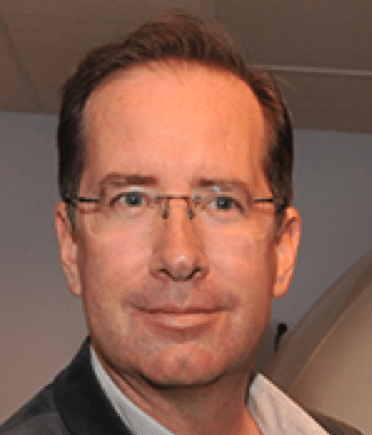 Director of Research at the CNRS / Professor of Clinical Psychology and Psychopathology at the Université Victor Segalen Bordeaux 2, Director of the “Neuroimaging and Daily Life” laboratory at the Ecole Pratique des Hautes Etudes, Joel Swendsen’s work overcomes these barriers through the use of smartphones and other mobile technologies, adapted to the study of temporally brief interactions and increasing the ecological validity of observations.
Director of Research at the CNRS / Professor of Clinical Psychology and Psychopathology at the Université Victor Segalen Bordeaux 2, Director of the “Neuroimaging and Daily Life” laboratory at the Ecole Pratique des Hautes Etudes, Joel Swendsen’s work overcomes these barriers through the use of smartphones and other mobile technologies, adapted to the study of temporally brief interactions and increasing the ecological validity of observations.
This has led to major discoveries about the mechanisms underlying depression, bipolar disorder, schizophrenia and addiction.
Recognized as a pioneer in this field, he has more publications on the feasibility and validity of mobile technologies in psychiatry than any other researcher internationally.
 For her work on schizophrenia and mood disorders, which has opened up new avenues of physiopathological reflection, bringing immunity and psychiatry closer together.
For her work on schizophrenia and mood disorders, which has opened up new avenues of physiopathological reflection, bringing immunity and psychiatry closer together.
Marion Leboyer is Professeur des Universités – Praticien Hospitalier at Université Paris Est Créteil – Head of the Psychiatry and Addictology Unit at Hôpitaux Universitaires Henri Mondor – Director of the Inserm translational psychiatry laboratory.
 The Philippe & Maria Halphen Grand Prize, amounting to € 20,000, was awarded on November 21, 2017, on the occasion of the official ceremony under the umbrella of l’Académie des sciences, to Professor Philippe Conus.
The Philippe & Maria Halphen Grand Prize, amounting to € 20,000, was awarded on November 21, 2017, on the occasion of the official ceremony under the umbrella of l’Académie des sciences, to Professor Philippe Conus.
Professor Philippe Conus heads the psychiatric department of the CHU Vaudois in Switzerland. Aged 56, this psychiatrist spent three years in Australia, which allowed him to gain experience in the field of early care of patients with psychiatric illnesses.
With an excellent scientific record, his research activity focuses on the development of early intervention strategies for the management of patients with severe depression and schizophrenia. While the clinical pictures of these psychiatric diseases are known at the state stage, this is not so the case when the first symptoms (the prodromal aspect) appear insidiously. Recent advances in the intimate mechanisms of these conditions and the clinical examination of patients with an early phase of the disease have allowed this experienced psychiatrist to identify the clinical determinants of these conditions and to implement new therapeutic approaches. Thus, based on experimental observations, convincing results have been obtained in cases of emerging psychosis using an antioxidant molecule.
Philippe Conus is one of those who will advance the discipline of psychiatry on the basis of “translational” research.
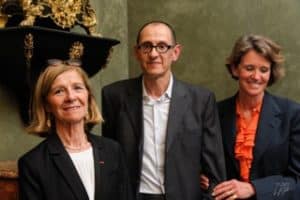
Mrs Pascale Cossart, Permanent Secretary of the Academy of Sciences, Prof. Philippe Fossati, 2016 laureate, Mrs Maria Halphen.
The 2016 Halphen Prize of the Academy of Sciences goes to Prof. Philippe Fossati for his works on cognitive and emotional disorders linked to depression.
The Philippe and Maria Halphen Prize, amounting to €20 000, was awarded on 22 November 2016 during the official ceremony under the dome of the Academy of Sciences to Prof. Philippe Fossati.
University lecturer and hospital practitioner (PU-PH) at the hospital group Pitié Salpêtrière in Paris, Philippe Fossati has been constantly rewarded for more than fifteen years for his works on cognitive and emotional depressive disorders.
The general goal of his researches is to define the mental disorders at the biological level to facilitate diagnosis and provide new targets and therapies adapted to the biological and physiological needs of the patients. His works mainly consist in using brain imaging (specifically functional MRI) to diagnose, monitor the effects of the treatments and spot vulnerability factors. His scientific endeavour fits into the effort of making psychiatry a predictive and bespoke medicine by rapidly transferring data from neuroscience to the patients.
Throughout his research career, Philippe Fossati has contributed to the discovery of the importance of cognitive disorders, and especially those related to executive functions, in the context of depression; of attentional resource allocation on internal and external world; of the paramount role of the medial and prefrontal structures in the focus on self-identity, and therefore in vulnerability to depression, onset of depressive symptoms and response to antidepressant therapies.
On 24 November 2015, the Philippe and Maria Halphen Foundation and the Academy of Sciences chose to reward Professor Luc Mallet for his outstanding work developed in the field of neuroscience research linked to Obsessive Compulsive Disorders (OCD).
Professor of Psychiatry at University Hospital Henri Mondor in Créteil and Hospital Albert Chenevier, Associate Professor at the University of Geneva, Luc Mallet has lead a research team since 2008 at the Brain and Spine Institute (ICM Inserm U1127) to the Pitié-Salpêtrière Hospital in Paris. This team coordinates a range of translational research projects aimed at characterizing the pathophysiology of pathological repetitive behaviors in humans with obsessive-compulsive disorder.
By awarding the Halphen Prize 2015, the PMHF confirms its main objective of supporting innovative scientific research in mental health. Working to continue the advancement and extension of partnerships amongst the mental health community, joining researchers, clinicians and those living with mental health disorders.
For futher information : contact@pmhalphenfoundation.org
See also : Halphen Prize 2015
For her research into the physiopathology of psychiatric illnesses, with particular reference to the psychobiology of emotions and the development of mental functions. Marie-Odile Krebs is a university professor and hospital practitioner at Hôpital Sainte Anne.
Marie-Odile Krebs has been involved in biological psychiatry research since the start of her career. She has invested heavily in the development of national and international networks and research platforms on the Sainte Anne Hospital site, enabling the development of bi-directional translational research. This has enabled it to build up clinical cohorts enriched by multiple explorations, calling on the various biological “omics” and imaging, in liaison with the clinic and cognition. She has established lasting collaborations with geneticists, notably with Professor Guy Rouleau in Montreal, leading to the publication of highly original articles opening up new avenues in the field of schizophrenia.
In collaboration with Alain Prochiantz, she studied the functions of a gene that controls the regulation of the opening/closing of the critical period during nervous system development. She has demonstrated the role of this gene in the maturation of complex behaviors (anxiety, social interactions) in mice. Finally, she was one of the first researchers to explore the neurodevelopmental hypothesis of the psychotic transition in parallel in humans and animals, a hypothesis which is today one of the main avenues for understanding psychiatric disorders beyond schizophrenia.
The Philippe & Maria Halphen Foundation, whose aim is to promote innovation and the advancement of knowledge and scientific research in the field of mental illness, with particular reference to bipolar disorders, schizophrenia and resistant depression, decided to create the Philippe & Maria Halphen Prize in association with the French Academy of Sciences.
On November 25, 2014, the Académie des Sciences awarded the Philippe & Maria Halphen Prize for neuropsychiatric research into mental illnesses.
Worth 15,000 euros, this year’s prize rewards research into the pathophysiology of psychiatric illnesses, with particular reference to the psychobiology of emotions and the development of mental functions.
The members of the Scientific Committee are : Yves Agid, Jean-François Bach, Raphaël Gaillard, Michel Le Moal, Yanne Norup, Jean Rossier, Norman Sartorius.

